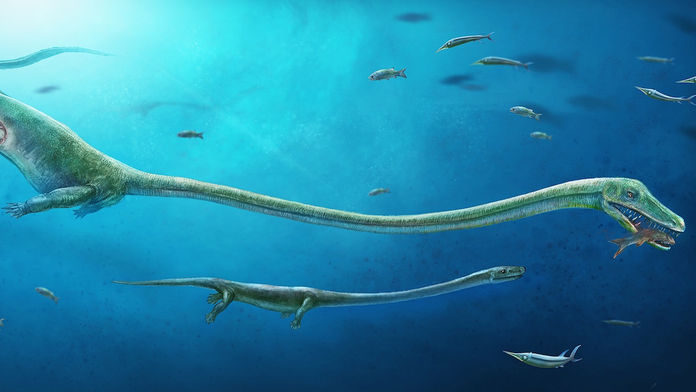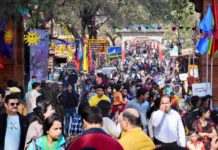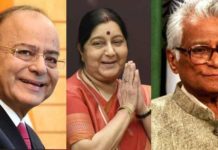The Daily Briefs are a comprehensive update of current affairs for the day. To know more about them, read this. If you’d like to receive updates for current affairs every day, you’ll need to subscribe by entering your email address at the right side of this page. The previous Briefs can be accessed at the archives here. Also, check out our mock tests!
- Aircraft maker Hindustan Aeronautics Ltd. will begin the process for its public offer this year. It will file the draft red herring prospectus for offering 10% of its shares with SEBI soon after the appointed bankers complete the valuation of the company.
- India created launch history by placing a record 104 spacecrafts in their desired orbits. The feat was performed on the old reliable launch vehicle, the PSLV, numbered C-37, which took off from the first launch pad at the Satish Dhawan Space Centre, Sriharikota, at 9.28 a.m. The PSLV, in the category of launch vehicles that can lift relatively light loads to space, now marks 38 successful missions in a row out of a total of 39 flights.
- During monsoon 2017, weather scientists will fly airplanes loaded with silver iodide over clouds hovering above Solapur, Maharashtra and begin a three year investigation into an old question: does cloud seeding produce sufficient rain? The Rs. 250-crore programme, coordinated by the Indian Institute of Tropical Meteorology, will be the first controlled experiment to quantify the extent to which clouds form water drops large enough to make rain. Seeding involves spraying chemicals into clouds. China used the technique during the 2008 Olympics to veer rain away from the inaugural venue and now has a full-fledged department that blasts rockets into clouds to induce rain and control pollution.
- The Cabinet has approved the setting up of a Centre for Excellence in Aerospace and Defence in collaboration with Dassault Systemes, the world’s third largest firm in aerospace, and Visvesvaraya Technological University (VTU).
- The Union Health and Environment Ministries are likely to collaborate on a series of studies to determine the long-term impact of air pollution on health in India. This comes on the heels of a report that attributed around a million air-pollution deaths in India, in 2015, to air-pollution.
- The government has given in-principle approval for a greenfield airport at Sabarimala to transport pilgrims to the hill temple. The Cabinet approved the proposal and entrusted the Kerala Small Industries Development Corporation (KSIDC) with the task of conducting a feasibility study.
- The President appointed five new judges to the Supreme Court, in a much-needed boost to the judicial strength of the highest court. The new judges are Chief Justice of the Madras High Court Sanjay Kishan Kaul, Chief Justice of the Kerala High Court Shantanagoudar Mohan Mallikarjunagouda, Chief Justice of the Rajasthan High Court Navin Sinha, Chief Justice of the Chhattisgarh High Court Deepak Gupta and Karnataka High Court judge S. Abdul Nazeer.
- The Ministry of Mines has launched Transparency, Auction Monitoring and Resource Augmentation (TAMRA) Portal and Mobile Application to ensure transparent award of statutory Clearances for mining operations The TAMRA platform was simultaneously launched across 12 mineral rich states as a part of the Ease of Doing Business in the Mining sector and to double mining contribution to GDP.
- The Union Cabinet chaired by the Prime Minister Narendra Modi has approved the merger of State Bank of India (SBI) with five of its associate/subsidiary banks. These five subsidiary banks are State Bank of Bikaner and Jaipur, State Bank of Hyderabad, State Bank of Mysore, State Bank of Patiala and State Bank of Travancore.
- The Sri Lankan government will soon launch a campaign to garner support for a new Constitution which it hopes to put to a referendum this year, former President Chandrika Kumaratunga said.

- An unusually long-necked marine reptile gave birth to live young 245 million years ago — the only known member of the dinosaur, bird and crocodile family to not lay eggs, researchers have found. Archaeologists examining the fossil of a female Dinocephalosaurus from Yunnan Province in southwest China were amazed to discover the remains of a baby among the bones where her abdomen would have been.
- Scientists from the University of Western Australia have successfully mapped the three-dimensional molecular structure of the EptA protein that shields superbugs from antibiotics. The EptA protein causes multi-drug resistance by masking bacteria from both the human immune system and important antibiotics.
















wow…i am literally very proud of our wonderful country India …..thank you for the brief..really helpful